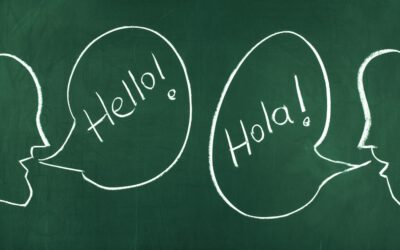There’s a moral change. Our world, which once was based on a thoughtful an empatic way of coexistance – if it ever really was that way – has been disappearing.
But stop, maybe it never really was an empatic way of coexistance. Maybe it was only the „visible“ part of the world, that part of which our newspapers and TV channels reported about most, which appeared to me, which pretended to care. And I always kind of knew it. That wasn’t really true. Money ruled that world, as well. He who had the money, the power (aka ellbows) and used it, he succeeded.
For decades, global narratives were shaped by a Western-dominated media landscape. The dominant rhetoric suggested a moral high ground: “We are the good ones. Our way of life is the right one. We are fair, and we support those less privileged.” These sentiments, while comforting, often masked deeper imbalances of power, privilege, and exploitation.
Even when criticized for being exploitative or self-serving, such behavior was reframed as “support,” “development aid,” or even “fair trade.” We have been accepting this narrative because it was convenient. Because it helped us sleep at night.
Language played a critical role in maintaining this illusion. Cross-cultural communication used to strive for diplomacy and decency. There was an unspoken agreement to allow the other party to save face—even while exerting pressure. Words were carefully chosen, often framed to soften harsh realities. In essence, we mastered the art of polite coercion. But this paradigm is crumbling.
We as a society are experiencing a drastic shift in how we communicate.
The so-called ‘social media’ has accelerated a brutalization of language. A ‘shitstorm’ every day, just for your own vanity, for 10 minutes of fame and a little bit of attention. And algorythms support that, they value creating such kind of communication.
Yes, language lives, is evolving, language changes. It always has. Sometimes as a result of social change, sometimes it drives it.
How I experience this today is a more and more upspeeding process, is a kind of negative spiral.
Also the whole political landscape is very aware of that change. Some (and unfortunately a rapidly growing number of politicians) are using it as a „new“ tool: Language. Brutal language. Extorsion. Blaming. Lies.
And to divert attention from their own misconduct, they accuse their political opponents of exactly this behavior and build themselves up into moral guardians. Perpetrator-victim reversal.
The more one acts brutal, the more he claims the other ones are stupid, evil, false. This shift also redefines what we consider acceptable. Behaviors and expressions once deemed unimaginable have become normalized. What we experience here is what I call „moral evolution“. And this doesn’t necessarily mean it’s a positive thing…
Generally speaking, in my definition moral evolution means to accept a change in behaviour from what once was unimaginable to „Hey, that’s ok – that’s normal.“
This brings us to the concept of “good enough” translations. These are translations that prioritize efficiency over nuance—providing a general sense of the original, but lacking fidelity to the author’s tone, intention, and cultural context.
A translation which doesn’t really care about the authors intention, about how he would have written this text if he did it in the target language for the people reading/hearing it in the target language based on their mentality and social rules and values.
This is what I would name a „good enough“ translation.
They simply give a seed of an idea, a direction but also do carry additional, different vibes of communication which were not originally intended.
To see both sides: yes, also a „good enough“ translation can be super helpful. They enable basic understanding across language barriers. But the danger lies in complacency.
My point of view: the better words fit the real intention, the fewer of them you need.
There is no need to belittle, shout at or insult anyone. Sure, this is definitely not the case with a lot of these „good enough“ translations. But the likeliness of carrying a misleading, not intended message is definitely higher than within high quality translations.
Choose your words wisely: Precision in language fosters clarity, reduces misunderstandings, and nurtures trust. Words matter. Tone matters. Intention matters.
And as we all know: misunderstandings are a major reason for conflicts between humans.
Well, politicians set an example in the way they communicate: more and more aggressive and brutal, not caring whether the words they use are really appropriate. Exalting oneself and humiliating others. „The tone of voice? I don’t care. Appropriate? I give a sh… Why should I make an effort with my communication? Hey, it’s good enough…“
Getting the appropriate tone of voice, finding the precisely right words is more than an old-fashioned art. It’s vital for a constructive, respectful, meaningful and impactful communication.
Covid-19 was a stark reminder: the world is one. As menkind is. There are no bounderies by nature. The virus made no distinction between the people of individual countries, skin-colours, relegion, or so-called races. So why should we?
Equipped with different experiences, knowlegde, traditions and (environmental and/or economic) circumstances we are diverse. Same, same – but different.
What we need is moral progress, reaching the next positive level of moral evolution: to accept others as equal with ourselves.
And paying respect to that by caring about using the right words. Because in a world as complex and interwoven as ours, “good enough” just isn’t good enough anymore.
I know: the tone of voice, the brutalism and all those lies (aka ‚alternative facts‘) are mostly not being created by those ‚good enough‘ translations. But a non-suitable translation can make things much worse. Only if we really care what (= intention, message) and how (= frequency, time, media & tone of voice) we communicate, we have the chance to positively shape the moral evolution.
So is the trend of loud, unfair, aggressive and „good enough“ communication stoppable?
Yes, definitely. It’s up to us. We simply need to take care.
Others won’t change for us. We need to act and set positive examples which hopefully soon will create enough energy and re-start a positive communication spiral.
Image source: Canva AI







